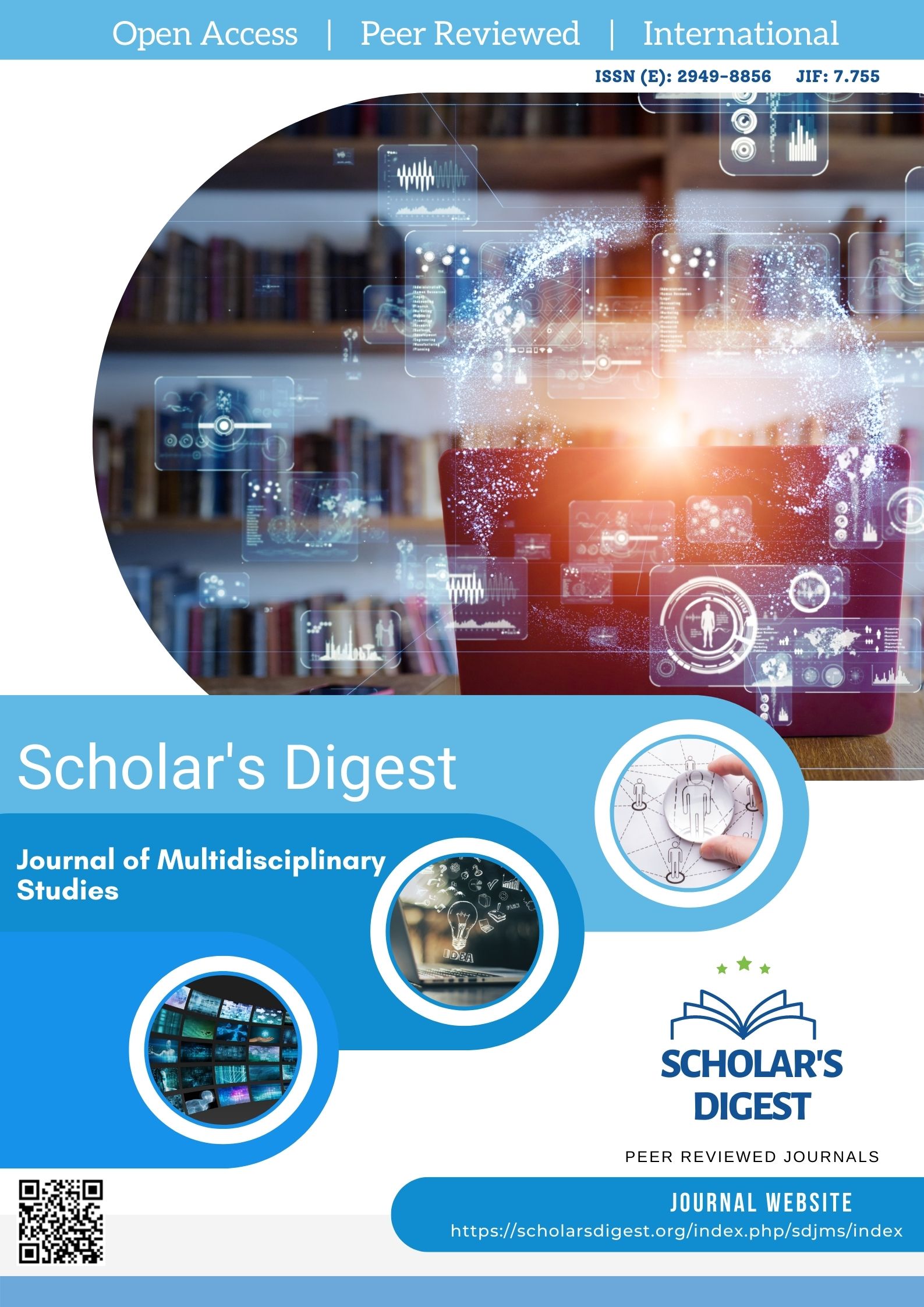PSYCHOLOGICAL CONFIDENCE AND ORGANIZATIONAL COMMITMENT IN SELECTED TELECOMMUNICATION ORGANISATIONS IN NIGERIA
Abstract
Confidence and organisational commitment. The sample comprised 280 managerial and non-managerial employees from four major telecommunication companies in Nigeria. A quasi-experimental research design was employed as it is deemed most suitable for the field of administrative sciences. Data collection involved primary and secondary sources. The Spearman rank correlation coefficient, utilising the Statistical Package for the Social Sciences (SPSS) version 25, was utilised for data analysis. The findings revealed a positive and significant relationship between psychological confidence (operationalised as self-efficacy and self-esteem) and organisational commitment. Specifically, self-efficacy and self-esteem were found to positively and significantly influence various dimensions of organisational commitment, including affective, normative, and continuance commitment. In light of these findings, we conclude that psychological confidence enhances organisational commitment within the telecommunication industry. Consequently, it is recommended that managers in the Nigerian telecommunication sector effectively cultivate their employees' psychological confidence (self-esteem and self-efficacy) to foster a more significant commitment to the organisation. Additional practical implications for managing employees’ psychological confidence and organisational commitment in the workplace are also discussed.
References
Allen, N.J. and Meyer, J.P. (1990), “The Measurement and Antecedents of Affective, Continuance and Normative Commitment to the Organization”. Journal of Occupational Psychology, Vol. 63, PP. 1-18.
Allen, N.J. and Meyer, J.P. (1990). “The Measurement and Antecedents of Affective, Continuance and Normative Commitment to the Organization.” Journal of Occupational Psychology, Vol. 63, PP. 1-18.
Angle, H.L and Perry, J.L. (1983) “Organizational Commitment: Individual and Organizational Influences,” Work and Occupations , May, No 10, pp123-146,
Avey , J.B., Luthans F. & Wernsing S. (2008) Can Positive Employees Help Positive Organizational Change? Impact of Psychological Capital and Emotions on Relevant Atti-tudes and Behaviors ,The Journal of Applied Behavioral Science, Vol. 44, 1, 48-70
Bandura A. (1986a) “The explanatory and predictive scope of self-efficacy theory.” Journal of Social and Clinical Psychology. Vol. 4. PP. 359–373. doi: 10.1521/jscp. 4.3.359. [CrossRef] [Google Scholar]
Bandura A. (1986b) “Fearful expectations and avoidant actions as coeffects of perceived self-inefficacy.” American Psychologist, Vol. 41. PP. 389–391. doi: 10.1037/0003-066X.41.12.1389. [CrossRef] [Google Scholar]
Bandura A. (1986c) Social foundations of thought and action: A social cognitive theory. Englewood Cliffs, NJ: Prentice-Hall; [Google Scholar]
Bandura, A. (1977) “Self-Efficacy: Toward a Unifying Theory of Behavioral Change.” Psychological Review, Vol. 84, PP. 191-215.
Bandura, A. (1986). Social foundations of thought and action: A social cognitive theory. Englewood Cliffs, NJ: Prentice Hall.
Bandura, A. (1992) Exercise of personal agency through the self-efficacy mechanisms. In Schwarzer, R. (Ed.), Self-efficacy: Thought control of action. Washington, DC: Hemisphere.
Bandura, A. (1994). Self-efficacy. In V. S. Ramachaudran (Ed.), Encyclopedia of Human Behavior, New York: Academic Press, pp. 71-81.
Bandura, A. (1994). Self-efficacy. In V. S. Ramachaudran (Ed.), Encyclopedia of human behavior (Vol. 4, pp. 71-81). New York, NY: Academic Press.
Bandura, A. (1995). Self-Efficacy in Changing Societies. London: Cambridge University Press.
Bandura, A. (2000). Cultivate self-efficacy for personal and organisational effectiveness. In E. A. Locke (Ed.), Handbook of principles of organisation behaviour (pp. 120-136). Oxford, UK: Blackwell.
Bandura, A. (2007). An agentic perspective on positive psychology. In S. J. Lopez (Ed.), The science of human flourishing. New York: Praeger.
Bandura, A., & Locke, E. A. (2003). Negative self-efficacy and goal effects revisited. Journal of Applied Psychology, 88(1), 87–99. https://doi.org/10.1037/0021-9010.88.1.87
Bandura, A. (1997) Self-efficacy: The exercise of control. New York: Freeman.
Bandura, A., & Schunk, D. H. (1981). Cultivating competence, self-efficacy, and intrinsic interest through proximal self-motivation. Journal of Personality and Social Psychology, 41(3), 586–598. https://doi.org/10.1037/0022-3514.41.3.586
Downloads
Published
Issue
Section
License

This work is licensed under a Creative Commons Attribution-NonCommercial 4.0 International License.








